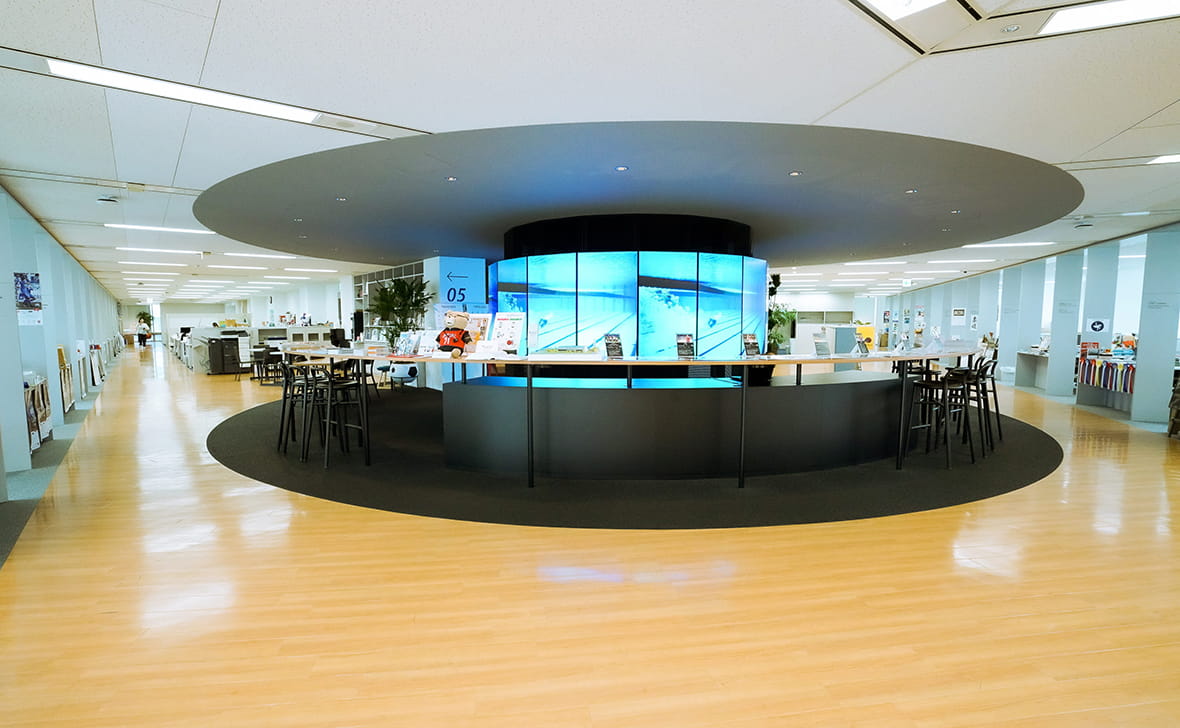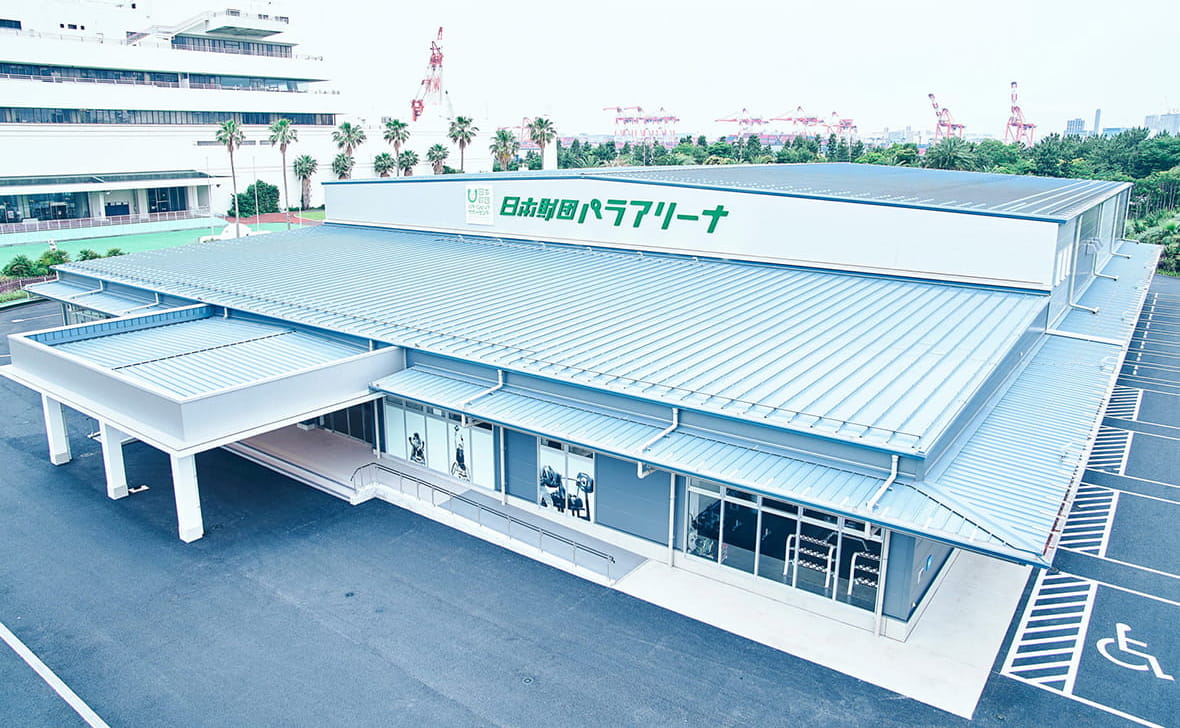An Internationally Unique Undertaking
The development of sports for the disabled in Japan dates back to the Tokyo Paralympics in 1964. Funding for Paralympic associations have increased since the enactment of the Basic Act on Sports in 2011, and measures are now in place to develop Paralympians in the same manner as their Olympic counterparts.
Despite such efforts, though, sports for athletes with disabilities still face an uphill battle. Of Japan’s approximately 30 associations for Paralympic sports, 10 lack legal status, and a majority did not have an independent office. The organizations were often registered at the private homes of members, and very few had a dedicated secretariat staff.
As part of its initiatives to build a more inclusive society, the Nippon Foundation—a private, nonprofit grantmaking organization engaged in maritime development and social welfare promotion—stepped in to establish the Paralympic Support Center in 2015. The center is an internationally unique undertaking, not only serving as a joint office to enable the sustainable and efficient management of Paralympic associations but also providing subsidies and administrative support with tasks like accounting and translation.
The Nippon Foundation has also been actively supporting the development of competitive para-athletes, building a special training facility called the Para Arena in the waterfront area of Tokyo and establishing the Para Athlete Scholarship Program at the Nippon Sport Science University. The following is an interview with Yohei Sasakawa, who as chairman of the Nippon Foundation has long been passionate about building a more inclusive and caring society.
The Paralympic Support Center (left) began operating in November 2015, while the Para Arena (right) opened in June 2018 for use by competitive and recreational para-athletes. In April 2020, as COVID-19 cases began to rise, the arena was temporarily converted into a facility to house patients with mild symptoms. It reopened as a para-sports center in April 2021.
© The Nippon Foundation Paralympic Support Center
YOHEI SASAKAWA: A major turning point for the Paralympic movement was the 2012 Games in London, where contests among para-athletes generated enormous attention and excitement. Watching the Games, I was struck by the thought that from now on, no Olympics Games would be considered a success unless the Paralympic Games, too, were successful.
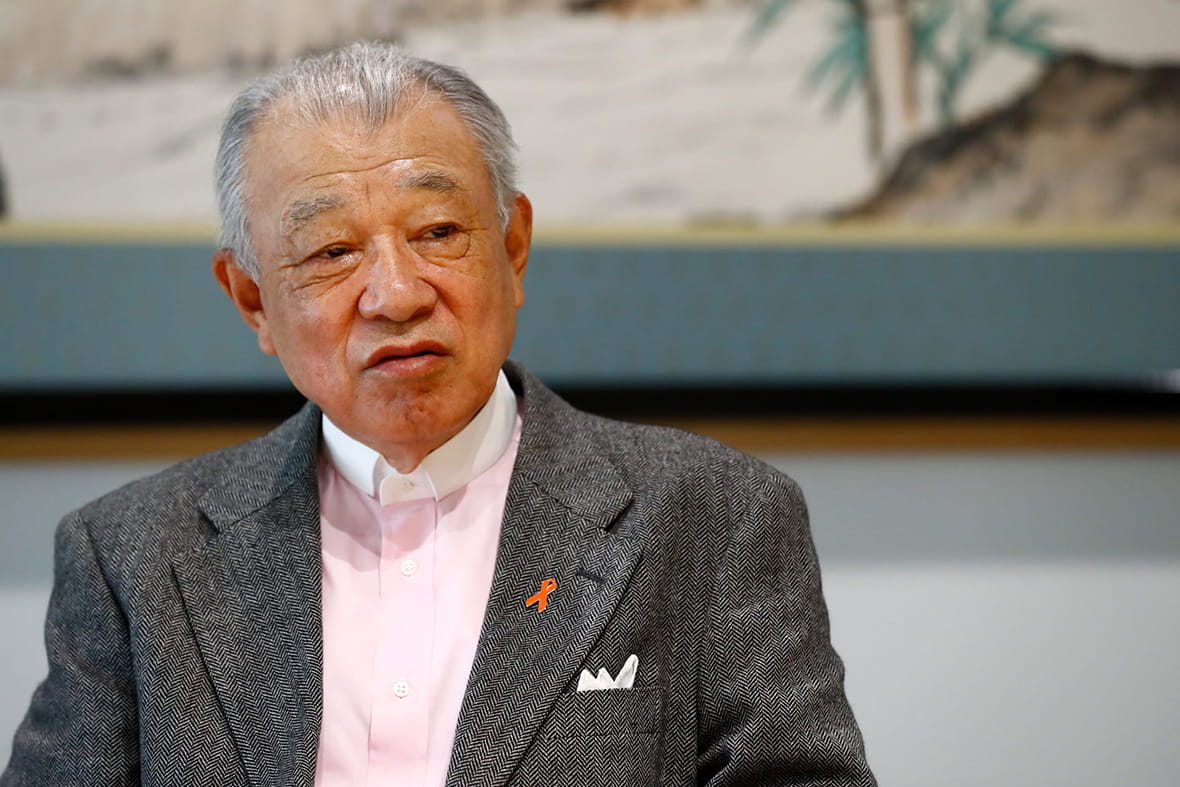
Support for the Paralympics, commented Nippon Foundation Chairman Sasakawa, is aimed at creating a more inclusive society for all. During a February 2021 news conference, he reiterated his commitment to para-sports, saying he would continue to provide a home for the Paralympic Support Center even after the Tokyo Games.
Just a year later, in September 2013, Tokyo was selected to host the 2020 Olympic and Paralympic Games. At the time I wasn’t fully aware of the conditions facing Japan’s para-athletes, and there seemed to be very little interest about disability sports in the country. So, I was shocked to learn that many Paralympic organizations had no office and were registered at the addresses of private homes, sometimes with the husband and wife as the only staff members. I couldn’t imagine the Tokyo Paralympics generating much enthusiasm under such circumstances. To make matters worse, many Paralympic groups were unable to take advantage of the funding available from the Japan Sports Agency due to the absence of qualified administrative professionals.
So, the first thing I did was to offer the fourth floor of the Nippon Foundation building in central Tokyo as the headquarters for all these groups. We named it the Nippon Foundation Paralympic Support Center, and it now houses the offices of 29 Paralympic national sports federations. Before it opened, singer and actor Shingo Katori—an enthusiastic Paralympic supporter—visited the office and created a vivid and colorful work of art on one of the walls. The center has helped groups operate far more efficiently; previously, many of the staff members had never met or spoken with people from other groups, but now they can share information and work closely with one another.
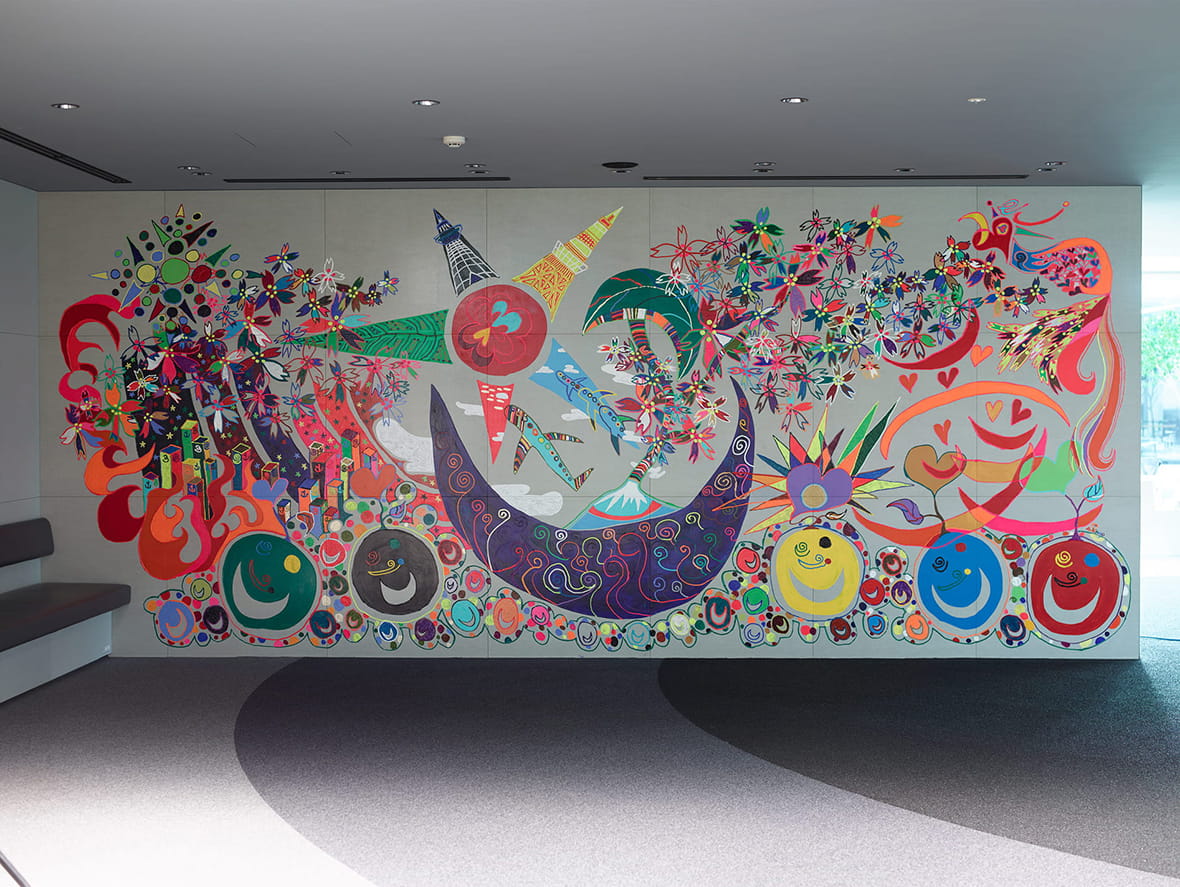
Artwork by Shingo Katori (2.6 meters by 6.1 meters) within the Paralympic Support Center, depicting the center’s “i-enjoy” theme. The smiling face in the middle is drawn using the red, blue, and green colors of the three “agitos” Paralympic symbol. ©The Nippon Foundation Paralympic Support Center
The support center staff have been doing a tremendous job helping to educate the public about the Paralympics, visiting elementary, junior high, and high schools around the country to expand awareness of various para-sports and para-athletes. Another initiative involves a Paralympic sport called boccia for people with cerebral palsy or other disabilities affecting motor skills. Not long ago, hardly anyone in Japan knew about it, but now it’s widely recognized and is increasingly being played by many people, including those without disabilities.
Initiatives for People with Disabilities
The Nippon Foundation has long been engaged supporting people with disabilities. Since 2006, it has sponsored the International Festival of Artists with Disabilities showcasing performing artists with visual, hearing, or other impairments.
And since 1993, the Sasakawa Sports Foundation—a close partner of the Nippon Foundation—has organized Challenge Day, a sports event in which the government, private groups, and local residents work together to create opportunities for all people, regardless of age or gender, to participate regularly in sports activities, improve their health, and revitalize communities.
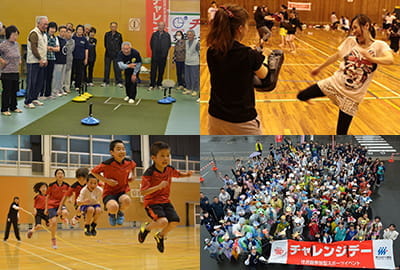
Challenge Day, held on the last Wednesday of May each year (postponed until October in 2021), is an opportunity for people of all ages to participate in the community through sports.
SASAKAWA: Sports offer many obvious benefits for both participants and spectators. But there are ways in which they can contribute to not only personal well-being but also the betterment of society. And it was with this in mind that the Nippon Foundation launched the HEROs Sportsmanship for the Future project in 2017, under which we ask Olympians and Paralympians to volunteer their time to talk about their experiences at schools and other venues around the country. We want them to share how they were able to overcome their setbacks, injuries, and hardships to reach the level they have been able to attain thanks to the support of their families and friends.
The overcoming of handicaps is a far more visible and tangible element of the Paralympics than the Olympics, and one might even say this is where the value of the Paralympic Games lies. Para-athletes can teach us the importance of never giving up, regardless of how difficult it may be to reach our goals. If the people watching the Paralympians perform in Tokyo are inspired to try harder to overcome their obstacles, then I’d say the Games will have been a great success.
Comments by the speaker translated from excerpts of an interview conducted in Japanese on February 19, 2020.

